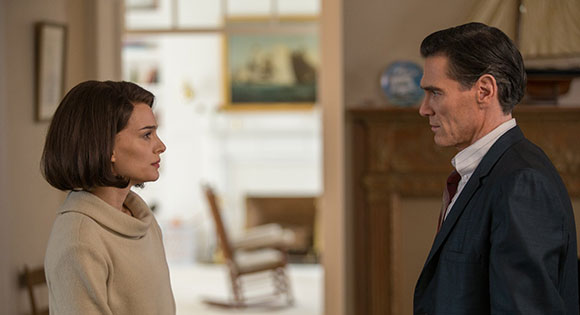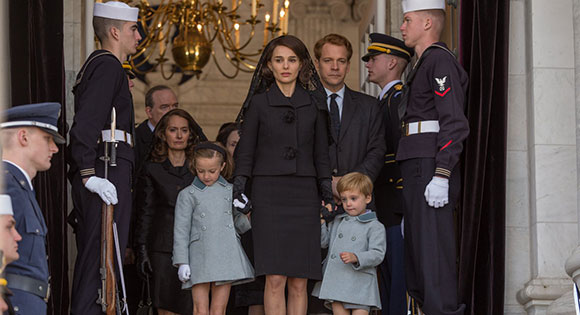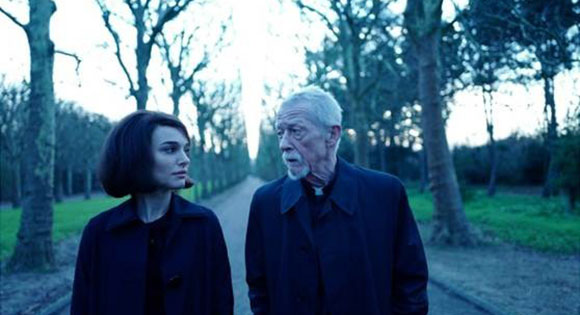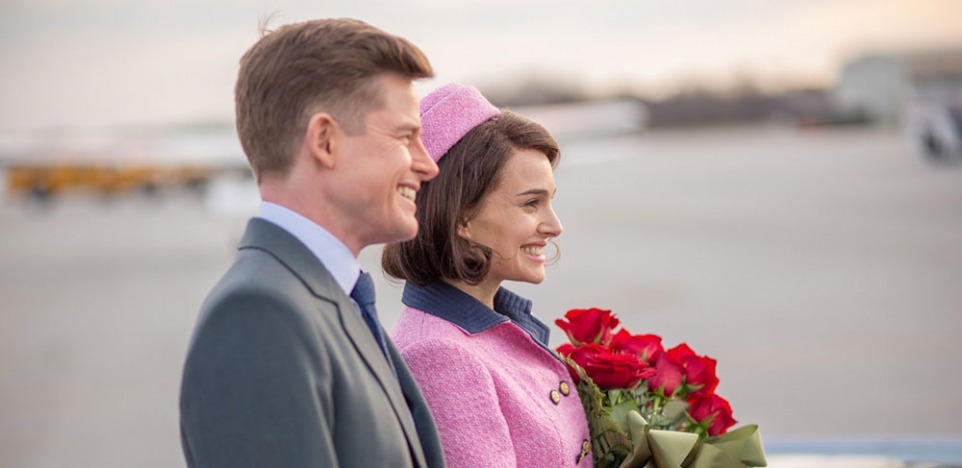"If God is love, why doesn't he stop all the horrors that we visit on each other?" is a question that haunts and pesters religious people and seekers alike. It is not the kind of theological or philosophical conundrum that we expected to be at the heart of this mesmerizing portrait of Jacqueline Kennedy (Natalie Portman), the complicated, regal beauty who helped create the brief but tantalizing glories of Camelot before being overwhelmed by the tragic assassination of her husband, President John F. Kennedy (Casper Phillipson).

As this portrait begins, the newly widowed First Lady has accepted an interview with reporter and biographer Theodore H. White (Billy Crudup) for Life magazine which is being conducted at her Hyannis Port home. She reveals several sides of her personality. For example, when he complements her on her televised 1962 tour of the White House and suggests she could have a career in broadcasting, Jackie responds with a combative question, "Are you giving me professional advice?" As we watch flashbacks of her filming the program, she speaks with a breathy voice as she glides through "the people's house."

In a riveting scene right after the shooting in Dallas, the shattered First Lady wipes the blood off her face and wanders from place to place with a dazed look. She stands firm in her plans for an elaborate public funeral march after reading about Abraham Lincoln's funeral, despite the opposition of an aide of the new President Lyndon B. Johnson (John Carroll Lynch). She discusses important matters with Robert Kennedy (Peter Sarsgaard), who is trying to secure his brother's legacy amidst his own intense grief. Throughout, she is supported by the many kindnesses of her assistant, Nancy Tuckerman (Greta Gerwig).
Jackie is directed by Pablo Larraín from a sophisticated screenplay by Noah Oppenheim which hops, skips, and jumps from the interview, to flashbacks, to newsreel footage. Natalie Portman gives an Academy-Award caliber performance as Jackie Kennedy. At one point in his meeting with the First Lady, the journalist Theodore White says: "You were a mother to all of us. The entire country watched the funeral from beginning to end. Decades from now people will remember your dignity and honesty."

Robert Kennedy suggests that the grieving Jackie see a priest, and she has some spiritually illuminating conversations with a sensitive priest (John Hurt) who practices deep listening. He assures her that "even in moments of unimaginable tragedy, God is still there." Even more helpful, he challenges the former First Lady to see that the works of God have been revealed in her. (For more about these scenes, see "Our reflections on meaning in Jackie.)
